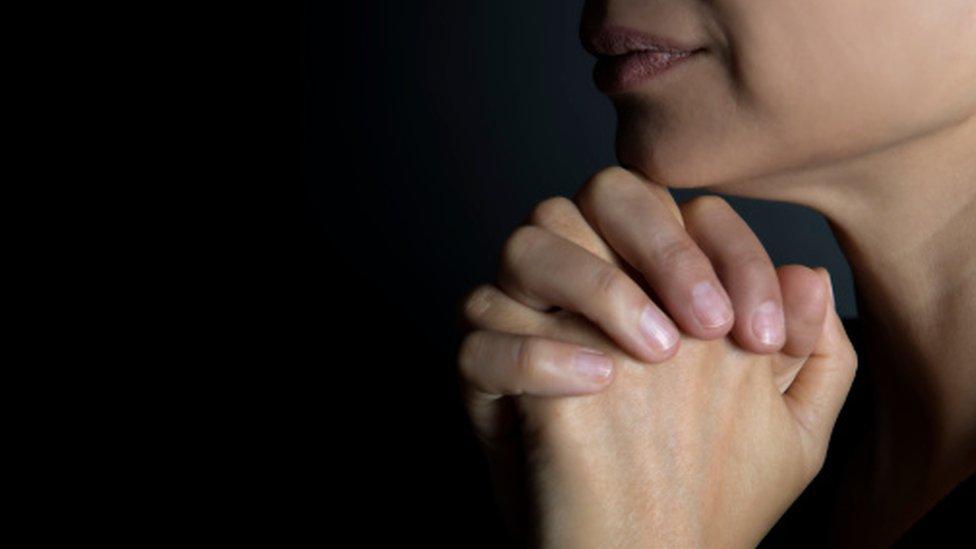Half of councils hold Christian prayers before meetings
- Published

Christian prayers are still held before meetings at half of Welsh councils, despite efforts to scrap them.
Five councils do not have them, but 13 pray before the formal start so it is not classed as an agenda item.
The National Secular Society (NSS) said councils "shouldn't be clubs for Christians" but the Church in Wales said prayer or reflection "could be hugely beneficial".
Campaigners have already called for the practice to be abolished.
Despite this, no council has changed its position in 18 months and none have plans to do so.
Denbighshire is the only council to have a formal prayer at the start of full council meetings; 13 others say them before full council meetings commence, so atheists or those of other faiths do not have to attend.
Vale of Glamorgan re-introduced Christian prayers at the request of new mayor Janice Charles after her predecessor, Stuart Egan, had humanist blessings.
Cardiff said it had "representatives from different faiths" to lead prayers.
Five councils do not have prayers, Pembrokeshire and Carmarthenshire allow the chairman to make the call and Wrexham said it was at the mayor's discretion.
Blaenau Gwent said it was the personal choice of the mayor, but it was "most often the case" a chaplain was appointed to lead prayers before full council meetings.
The Church in Wales said councillors could benefit from prayer or reflection before making "decisions which will affect many people".
A spokeswoman added: "Those of us with a faith may give thanks for the opportunity to make a difference and ask for God's guidance on our decisions. Those without a faith may appreciate a moment of quiet to reflect on the task ahead and remind us of our common purpose."
An act covering England says council meetings " or other religious observance, or observance connected with a religious or philosophical belief".
There is no equivalent act in Wales and the Welsh Local Government Association said individual councils were not issued guidance on the matter and could use their own discretion.
NSS campaigns director Stephen Evans said scrapping prayers or removing them from meetings "allows councillors and members of staff who do not wish to participate to avoid them without having to excuse themselves".
He added: "Local councils shouldn't be clubs for Christians and unless acts of worship are properly separated from official business, the religious freedom of non-Christians will not be adequately respected."
- Published2 July 2017
- Published10 January 2016
- Published10 February 2012